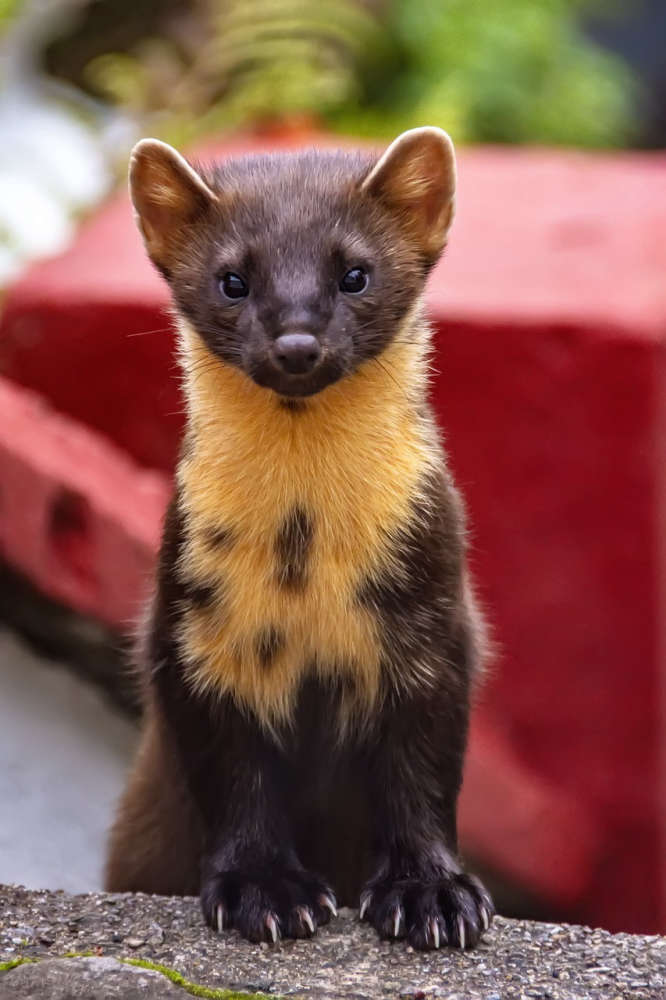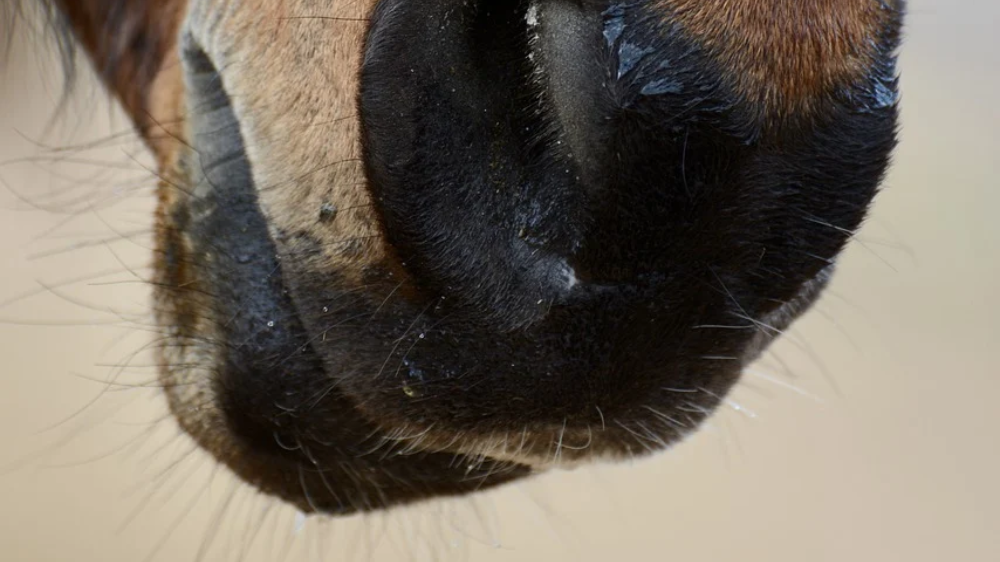
It's part of plan to restore nature
Pine martens are expected to be reintroduced on Dartmoor this year as part of measures to restore nature.
The creature, once Britain’s second most common carnivore, disappeared from Dartmoor and Exmoor 150 years ago because of a loss of habitat and persecution.
They are seen as a vital missing part in thriving eco systems and have been introduced in Mid Wales and the Forest of Dean, with plans also to release them in Somerset.
This year will also reveal whether efforts to boost curlews on Dartmoor have been successful.
The moor is down to its last pair of ageing curlew; four lapwings and the ring ouzels have gone.
Head of conservation and land management at Dartmoor National Park Authority (DNPA) Chris Giles said many species were living in areas they would not choose to be in.
He said too many predators on the moor had resulted in a reduction or loss of rare and smaller species, with crows, deer, foxes and grey squirrels in abundance.
Mr Giles told DNPA members that the biodiversity crisis and climate change are the greatest challenges of our time and are arguably the top priorities for the national park.
The authority is now focused on nature recovery and working on a large scale, rather than the “scattergun” approach of the past, and collaborating with others to do that, he said.
They include the Duchy of Cornwall, Devon Wildlife Trust, the Environment Agency and South West Water, as well as landowners and farming and forestry businesses.
England is said to have become one of the most ‘nature depleted’ countries on earth, with more than one in seven species facing extinction. In response, in 2018 the government outlined an ambition to halt and reverse nature’s decline through a 25-year environment plan.
It has committed to protecting 30 per cent of the UK’s land for nature by 2030. Environmental Land Management Schemes (ELMS) which will become the main source of public support payment to farmers after something called the Basic Payment Scheme is phased out in 2027 and it is claimed it will be instrumental in landscape recovery.
Mr Giles said DNPA is restoring natural processes like peatland, cleaning up rivers and reducing flooding.
He said that at least 50 years of peatland restoration needs to be done and by the end of next year 1,000 hectares will have been restored over a three-year period through a partnership with South West Water.
The moor’s Farming in Protected Landscapes programme has supported over 130 projects including planting more than 1,000 native trees and 40 hectares of new habitat for nature.
Projects to boost the environment are in place in central and east Dartmoor, and the Walkham Valley which make up 30 per cent of the moor.
The curlew programme is a Duchy of Cornwall initiative in which eggs that would otherwise be destroyed are incubated and raised on the moor for release in summer. Mr Giles said this year they would find out if the birds had returned.
External funding means that there are now 13 full time jobs in the park authority’s natural environment team. Seven years ago there was one and a half jobs.
But Mr Giles said more resources are needed to have a larger impact.
“To achieve this, it can’t be a little bit here and a little bit there. We are not looking at single farms, but large scale landscapes where we can make a big difference, allowing nature to take the reins again in some areas. We need to make sure our exciting wildlife is protected and enhanced.”
DNPA member Philip Sanders said it would be folly to try to recreate the past as nature evolves. “You cannot fight nature,” he said
Andrew Cooper, a DNPA member and a wildlife broadcaster and producer, said it is important to have a level of ambition, but any gain in nature is a bonus. He said predators on the moor are opportunists with crows being attracted by litter and then going after small birds.
He said the increase of dogs on the moor after lockdown had had a negative impact on wildlife habitats.
 Fifth person arrested over 'unusual batch of heroin'
Fifth person arrested over 'unusual batch of heroin'
 'New Newquay' goal for Torbay as watersports booms
'New Newquay' goal for Torbay as watersports booms
 Second man dies in heroin emergency
Second man dies in heroin emergency
 Exeter riding school needs new recruits
Exeter riding school needs new recruits
 Communication needs to improve over accommodation for asylum seekers
Communication needs to improve over accommodation for asylum seekers
 One dead, four injured in A38 crash
One dead, four injured in A38 crash
